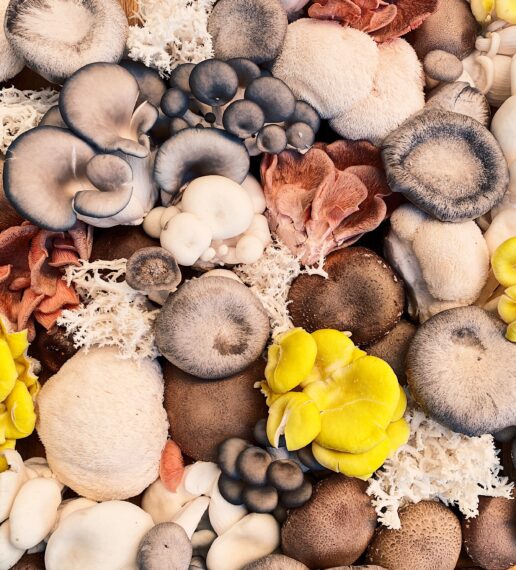Coffee Vs. Tea: Caffeine Content and Health Benefits
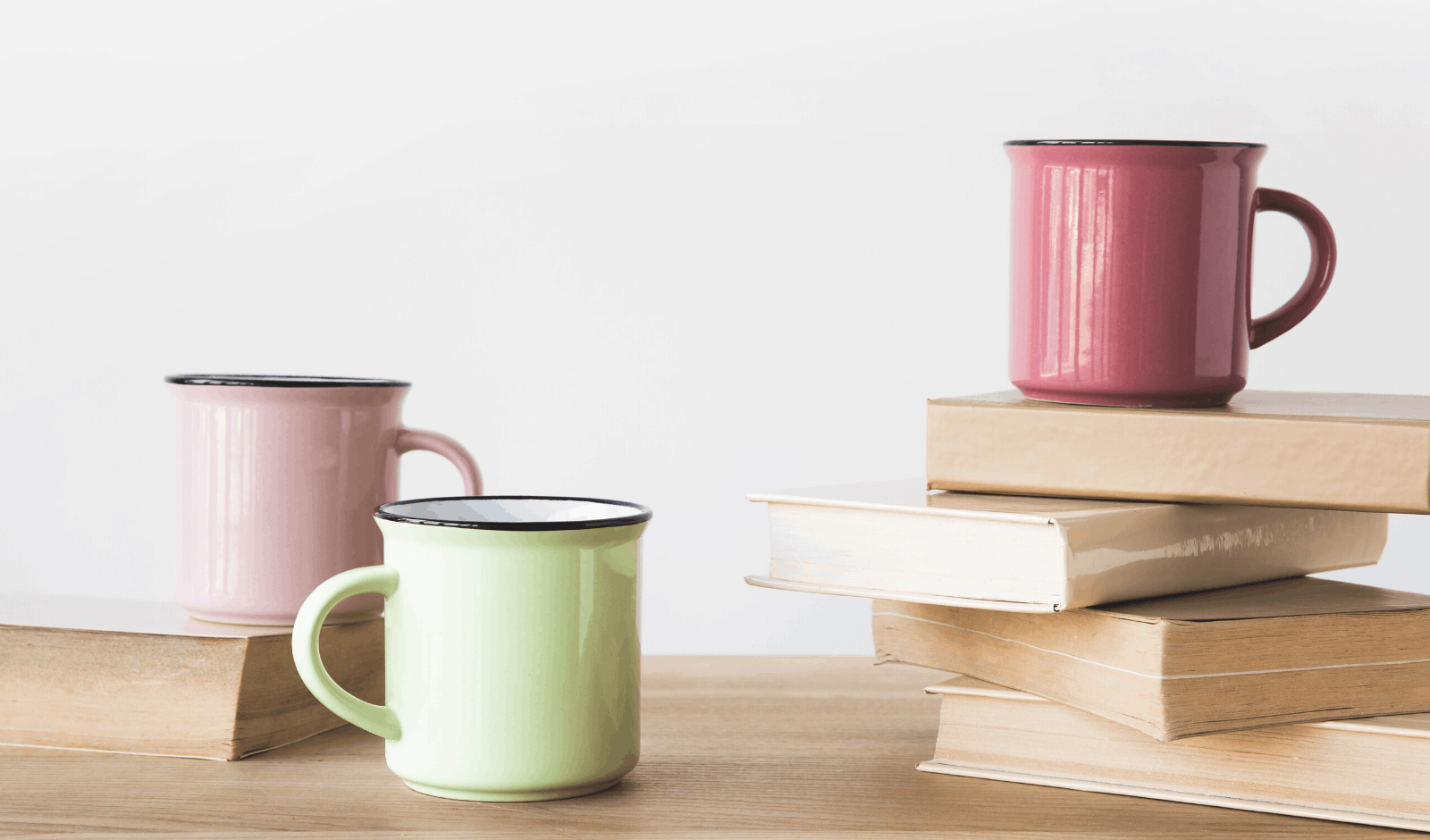
Coffee and tea are both consumed widely in every corner of the world due to their amazing antioxidants and health benefits.
Of course, you can’t ignore the fact that caffeine is a powerful stimulant either.
A cup of coffee or tea can give you that perfect boost to power through the day.
But when it comes to coffee vs. tea, what should you choose? It depends. Let’s take a closer look.
Coffee Vs. Tea: How They’re Made
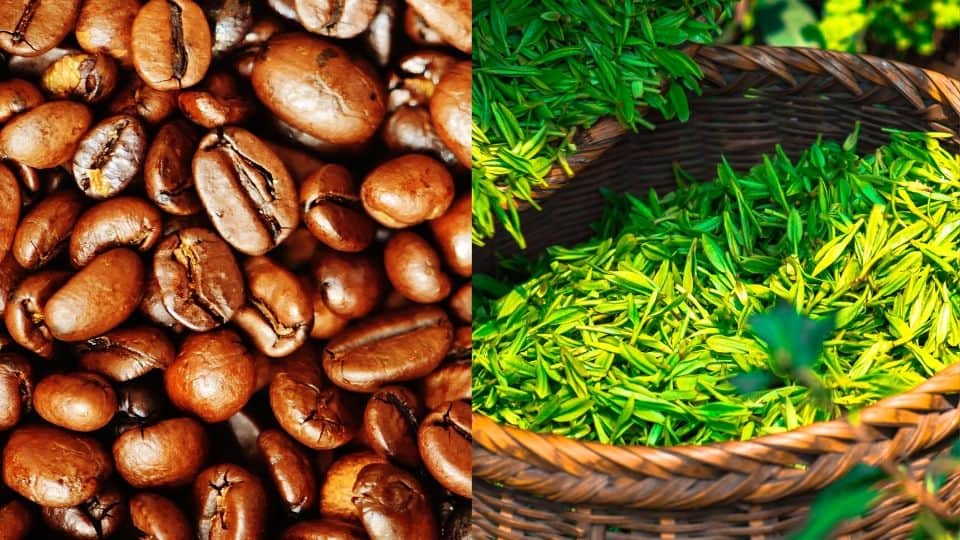
Coffee and tea come from two totally different plants and are made from completely different production processes.
Coffee comes from coffee beans. Indigenous to Yemen and Ethiopia, people have consumed coffee as we know it since the 15th century. Yemen and East Africa still produce some of the world’s best coffee to this day! (1)
While generally known as beans, coffee begins its journey as red berries. After a meticulous and labor-intensive picking and selection process, the berries are dried and the flesh is removed from the bean.
Next, the beans are roasted. The heat from roasting forces the natural sugars through a caramelization process which changes the chemical composition, flavor, color, and aroma.
Tea leaves, on the other hand, comes from the tea plant camellia sinesis. All types of true tea from this plant (2):
- Black tea
- Green tea
- Oolong tea
- Yellow tea
- White tea
The first tea as we know it dates back to the third century in ancient China. However, several cultures around the world grow their own indigenous versions of tea in places like Turkey, India, and Japan.
Tea leaves are picked and dried. As they dry, tea leaves oxidize which changes the color and flavor.
Coffee Vs. Tea: Caffeine Content
Most people reach for a cup of coffee in the morning and a cup of tea in the afternoon because their caffeine content provides an awesome boost.
Which hot drink is more caffeinated and why does it matter?
Coffee Caffeine Content

Coffee provides a higher caffeine content — by far.
However, it really depends on how it’s brewed. (3)
Your traditional American drip or filter coffee delivers 115 to 175 mg of caffeinated goodness depending on the strength.
Meanwhile, boiled Arabic or Turkish coffee can send you through the roof with 160 to 240 mg of caffeine.
If you’re somewhat sensitive to caffeine but don’t want to stop drinking coffee entirely, try brewing with a French press. The plunger method gives you a cup of coffee with only 80 to 135 mg of caffeine: about the same as a strong cup of black tea!
Most agree that to manage caffeine intake, you shouldn’t drink more than about three cups of coffee brewed with the drip method or only about two 8 oz cups of Arabic coffee (not the tiny little cups they serve it with).
Tea Caffeine Content
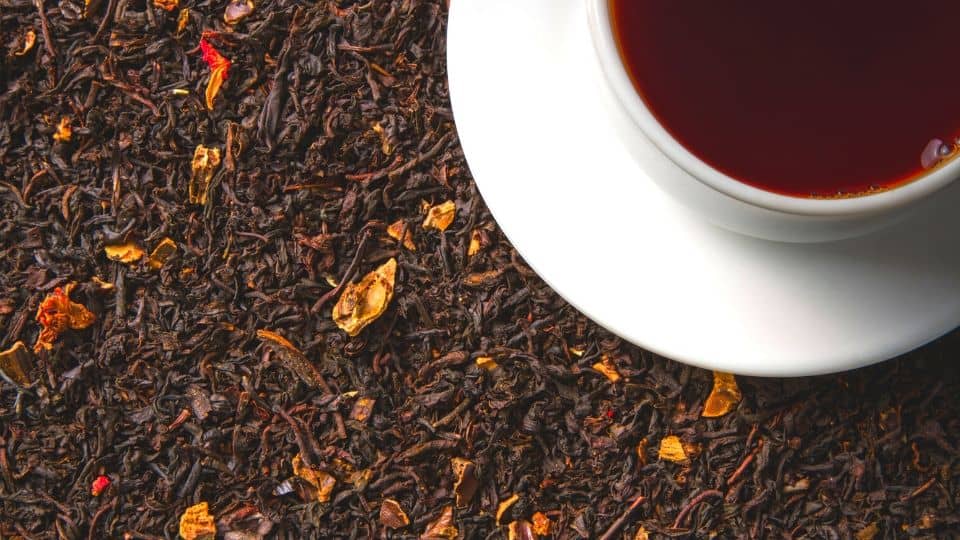
Tea drinkers will be happy to know that a cup of tea has about 42 mg of the good stuff on average — so about 50% less caffeine than coffee.
That’s an average that varies drastically by brand. (4)
Lipton black tea, which is what you’ll get if you ask for “tea” almost anywhere in the world (even most of the Middle East), has between 17 and 47 mg depending on how long you steep it for. The longer you steep your tea, the more caffeine content you’ll get.
If you’re looking for more of a caffeine boost from tea alone, try Tazo’s Awake variety. It has 59 mg of caffeine in every 8-ounce cup of tea steeped for just one minute. Steep it for five minutes and you’ll have over 60 mg of caffeine.
We’ll jump into the specific health benefits below but you should know that in terms of caffeine content, tea comes with one big added benefit: l-theanine.
L-theanine is an amino acid found naturally in black tea, green tea, and certain species of mushrooms. Studies suggest that l-theanine has an interesting effect on the brain because it promotes relaxation without making you feel drowsy. (5, 6)
Have you ever noticed that you feel extremely calm yet alert after drinking a few strong cups of tea? That’s the synergistic effect of the caffeine and l-theanine. The amino acid l-theanine helps prevent jitters and the anxious feeling you get from high caffeine intake.
Coffee Vs. Tea: Health Benefits
Both regular tea drinkers and coffee drinkers will be happy to know that their favorite energy boost is loaded with antioxidants for incredible health benefits.
Health Benefits of Coffee:
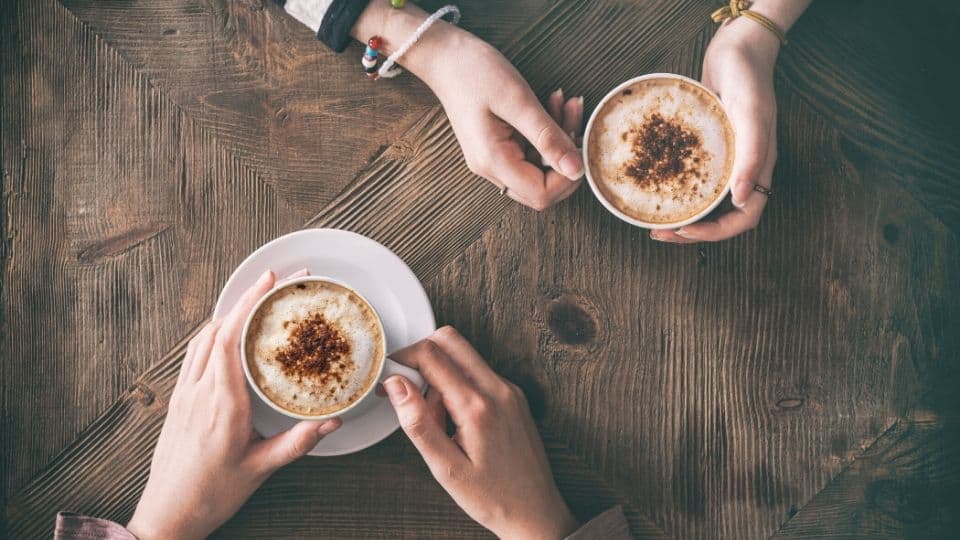
Coffee lovers, here’s your time to shine. For most Westerners, coffee is their biggest source of antioxidants. Here are a few of the potential health benefits of coffee.
- Coffee consumption may provide a lower risk of Parkinson’s disease and Alzheimer’s disease. (7, 8)
- May help burn fat and support weight loss. (9)
- Can support healthy brain function, mood, and memory. (10)
- Coffee drinkers may have a lower risk of type 2 diabetes. (11)
Health Benefits of Tea:
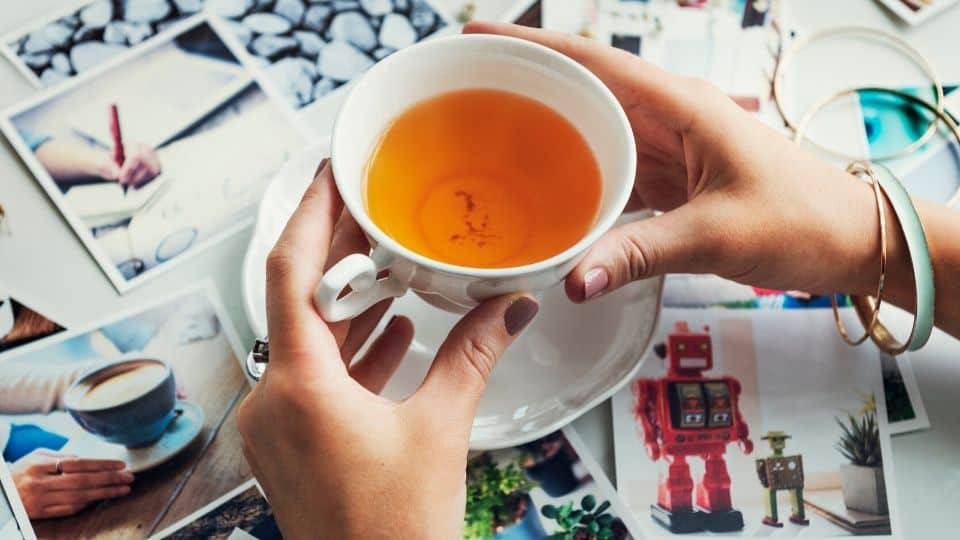
Keep in mind that the following health benefits of tea come from tea bags and loose teas made from the official tea plant — not herbal teas.
Most of the benefits of black tea come from catechins, polyphenols, and flavonoids which all function as antioxidants. While black tea does have some EGCG, it doesn’t contain as much as green tea. Instead, black tea has higher levels of theaflavins.
- May reduce your risk of heart disease, heart attack, and stroke. (12, 13)
- Might lower cholesterol. (14)
- May reduce high blood pressure. (15)
Coffee Vs. Tea: The Bottom Line
Coffee and tea are some of the healthiest drinks you can choose (as long as you don’t load them up with sugar or too much cream).
They’re both packed with antioxidants, flavonoids, and polyphenols which might support brain function, weight loss, and healthy blood pressure.
Best of all, as long as you’re not sensitive to any amount of caffeine, they’re generally safe with minimal side effects and risk. Enjoy!
